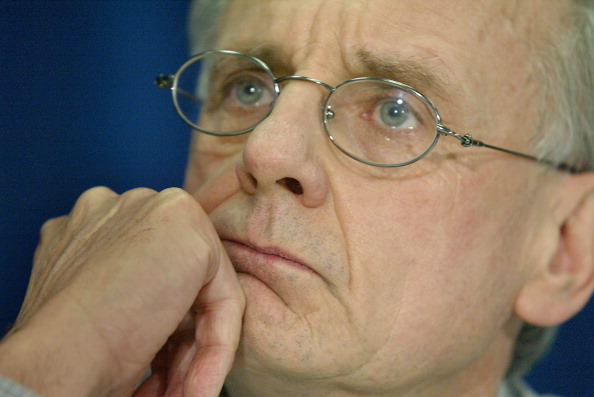TORONTO – Health Minister Rona Ambrose says she’s willing to talk to her provincial and territorial counterparts about assisted suicide when she meets with them Friday, but insists Ottawa has no intention of legalizing it.

“I will take part in the conversation,” she said Thursday. “It’s an important conversation to have, and of course all of us have had these conversations around the kitchen table.”
Related: SARS doctor Donald Low urges Canadians to legalize assisted suicide in posthumous message
Several health ministers gathered for a conference in Toronto said there should be a national discussion about the emotionally-charged subject, but wouldn’t say whether assisted suicide should be legalized.
“What I can say collectively is that there are many standing here that are torn on this matter and believe that this is a conversation whose time has come,” said Manitoba Health Minister Theresa Oswald.
“That doesn’t mean that they are fors or againsts. I think that there are people standing here – and certainly in my province – that believe we should be having a national conversation about this.”
Manitoba doesn’t have a position on whether assisted suicide should be legalized. But the conversation about it must be “entrenched in compassion,” she said.
The ministers were briefed by Quebec’s health minister about his government’s right-to-die legislation, the first of its kind in Canada. If passed, it would outline the conditions necessary for someone to get medical assistance to die.
“They were very interested of what’s going on in Quebec and very interested in following … the evolution of this bill,” said Quebec Health Minister Rejean Hebert.
Hebert’s presentation was interesting in how Quebec has addressed the issue, putting it in very specific medical terms and developing criteria, he said.
Like many provinces, Alberta doesn’t have a firm position yet on assisted suicide, said Fred Horne, the province’s health minister.
“Canadians are already talking about this,” Horne said. “They expect their elected officials to be listening and following the discussion.”
Assisted suicide has been debated for decades, but the taboo topic resurfaced recently after a prominent doctor made an impassioned, videotaped appeal to legalize it just a few days before his death.
Eight days before he died from a brain tumour at age 68, Dr. Donald Low, who guided Toronto through the 2003 SARS crisis, asked that Canada allow people to die with dignity.
Ontario Health Minister Deb Matthews said Low would be “tickled pink” that he succeeded in renewing the debate.
“I think that this is a conversation that people need to have,” she said. “I don’t think it’s a government decision right now.”
The Canadian health ministers are scheduled to continue their conference Friday in Toronto, where the provinces will likely press Ambrose to reverse funding cuts to health care services to refugees, among other things.
In their communique, the ministers said they had “serious concern” about the cuts, which could cost them millions of dollars.
“Some vulnerable patients in need of care have found it difficult to access adequate treatment while hospitals and other health-care providers have assumed costs that had previously been borne by the federal government,” the communique said.
Ambrose said the decision to change the benefits was based on fairness, “that refugees were receiving benefits that no other Canadian receives – taxpaying Canadian.”
She said she will speak to the provinces about what benefits refugees can still access and ask them to keep track of any additional costs that they’re incurring.
“Canada is a very compassionate country, and those that need emergency care are not going to go without it,” Ambrose added.



Comments